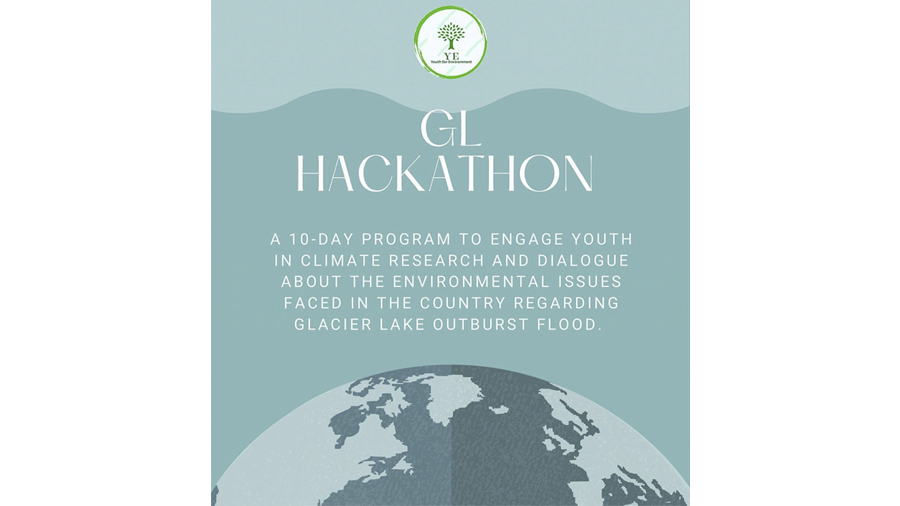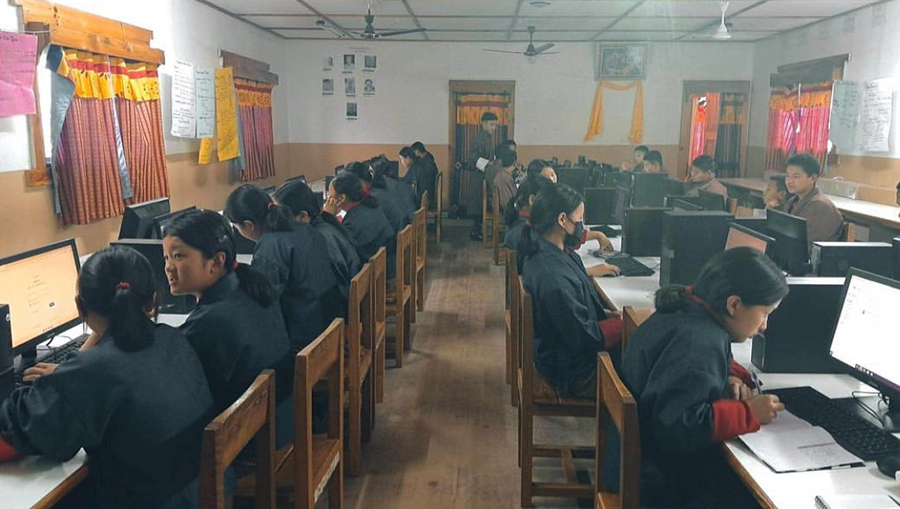
Bhutan falls under the Hindu Kush Himalayan region and recent assessments found out that the region has experienced an increase in temperature faster than the global average. Experts claim this could trigger Glacial Lake Outburst Floods or GLOFs and extreme climatic conditions. To engage Bhutanese youth in brainstorming ideas to combat and mitigate risks of GLOFs, a youth group called the Youth for Environment conducted a ten-day hackathon involving youth and people from various backgrounds.
 40 students aged 13 to 22 from various in-country and overseas schools and colleges participated in the event. Social media influencers, environmentalists and international experts among others also took part in it.
40 students aged 13 to 22 from various in-country and overseas schools and colleges participated in the event. Social media influencers, environmentalists and international experts among others also took part in it.
Team Best Hacks which won the competition proposed to involve media and mobile service providers in disseminating information related to GLOF to the people. Their second strategy was focused on adaptive approaches such as constructing GLOF-resistant infrastructure using sandbags and recycled bottles.
“These measures can be principally effective. However, the effectiveness of these measures depends on several factors; including the availability of resources, political commitment and the involvement of the local community in risk reduction efforts,” said Finu Shrestha, Remote Sensing and Geo-information Analyst of ICIMOD.
Dechen Zam Tshering is an active member of Youth for Environment, the youth group that organized the event. She formed the group that advocates on environmental conservation in 2020.
“At such age, if they are exposed to environmental threats and issues, and learn about GLOF, when they become older and reach a position where they can actually play a role in mitigating GLOF, then it would be very inspiring for them as a whole. As youths, it is vital to learn about things happening within the country and outside as well. And in this day and age, climate change is a very huge thing.”
The bigger picture is the Hindu Kush region will be warmer by 2 to 4 degree Celsius in the next 70 years or so according to studies. This will be catastrophic for millions of people living downstream in the region such as in Bhutan. Moreover, Bhutan has more than two thousand lakes from which over 20 of them pose risks of GLOFs.
Events such as this hackathon could help sensitise and prepare the next generation of leaders in combating climate-associated threats such as GLOFs and being agents of change in the community.
Tshering Deki
Edited by Kipchu









